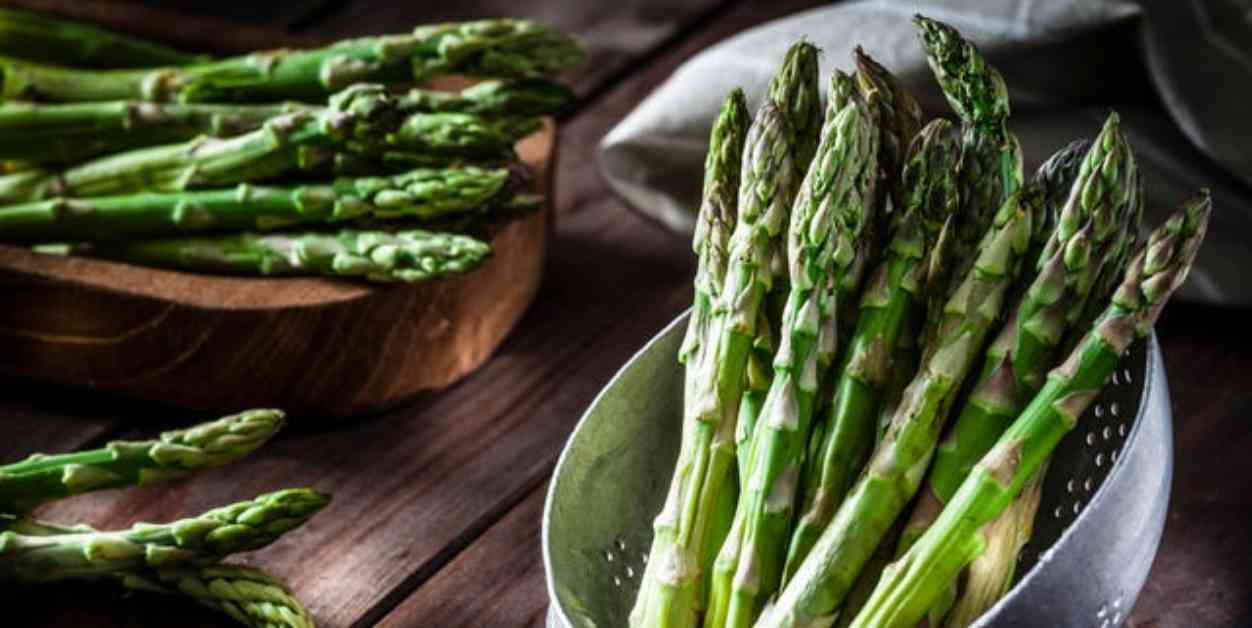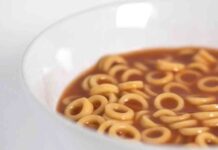Top Vegetables Recommended by Dietitians for Weight Loss
When it comes to weight loss, many people turn to restrictive diets or intense workout routines to shed those extra pounds. However, one of the most effective and sustainable ways to lose weight is by incorporating more vegetables into your diet. Not only are vegetables low in calories, but they are also packed with essential nutrients that can help support your weight loss goals. In this article, we will explore the top vegetables recommended by dietitians for weight loss, along with their nutritional benefits and delicious ways to incorporate them into your meals.
1. Cauliflower: A Versatile and Nutrient-Packed Vegetable
Cauliflower is a versatile vegetable that is a staple in many weight loss diets. It is low in calories and high in fiber and antioxidants, making it a great option for those looking to shed pounds. You can easily roast or air fry cauliflower for a crispy and delicious side dish, or enjoy it raw with hummus or guacamole. Cauliflower is also a popular ingredient in cauliflower crust pizza, providing a nutritious alternative to traditional pizza crusts.
Nutritional Facts:
– Serving size: 1 cup, raw (110 grams)
– Calories: 27.5
– Fat: 0.308 grams
– Protein: 2.11 grams
– Carbohydrates: 5.47 grams
– Fiber: 2.2 grams
– Sugar: 2.1 grams
– Vitamin C: 53 milligrams
– Iron: 0.462 milligrams
2. Brussels Sprouts: A Nutrient-Dense Superfood
Brussels sprouts are often overlooked but are packed with essential nutrients that can support weight loss and overall health. They are low in calories and high in fiber, folate, vitamin K, and vitamin C. Folate, also known as vitamin B9, is crucial for fetal growth and development in pregnant women. Brussels sprouts can be prepared in a variety of ways, such as roasting, sautéing, or adding them to salads or omelets.
Nutritional Facts:
– Serving size: 1 cup, raw (88 grams)
– Calories: 37.8
– Fat: 0.264 grams
– Protein: 2.97 grams
– Carbohydrates: 7.88 grams
– Fiber: 3.34 grams
– Sugar: 1.94 grams
– Vitamin C: 74.8 milligrams
– Iron: 1.23 milligrams
3. Kale: A Nutrient-Packed Leafy Green
Kale is a powerhouse vegetable that is loaded with vitamins and minerals essential for weight loss and overall health. It is rich in vitamin A, vitamin C, and vitamin K, as well as being low in calories and high in fiber. Vitamin K is crucial for bone health and blood clotting, making kale a valuable addition to your diet. Kale can be enjoyed raw in salads, sautéed with pasta, chicken, or eggs, or even baked into crispy kale chips for a nutritious snack.
Nutritional Facts:
– Serving size: 1 cup, raw (20.6 grams)
– Calories: between 7.21 and 8.86
– Fat: 0.307 grams
– Protein: 0.602 grams
– Carbohydrates: 0.911 grams
– Fiber: 0.845 grams
– Sugar: 0.165 grams
– Vitamin C: 19.2 milligrams
– Iron: 0.33 milligrams
4. Artichokes: A Gut-Friendly Prebiotic Vegetable
Artichokes, also known as sunchokes, are a major source of the gut-friendly prebiotic fiber inulin. Inulin can improve gut microbiota, increase mineral absorption, and reduce constipation. Artichokes contain inulin-type fructans, which may help reduce cravings for sweet, salty, and fatty foods. They are rich in fiber and folate, making them a healthy addition to your diet. Artichokes can be enjoyed in various ways, such as grated into salads, roasted or steamed, added to soups and stews, or substituted for potatoes in recipes.
Nutritional Facts:
– Serving size: 100 grams or 2/3 cups
– Calories: 47
– Fat: 0.15 grams
– Protein: 3.27 grams
– Carbohydrates: 10.5 grams
– Fiber: 5.4 grams
– Sugar: 0.99 grams
– Vitamin C: 11.7 milligrams
– Iron: 1.28 milligrams
5. Zucchini: A Hydrating and Nutrient-Rich Vegetable
Zucchini is a great vegetable to include in your weight loss diet due to its high water content, vitamins, minerals, and antioxidants. It is a good source of vitamin C, vitamin K, potassium, and fiber, which can help increase satiety and support weight loss goals. Zucchini can be sautéed, added to smoothies, or incorporated into baked goods for a nutritious boost. Its antioxidant content, such as lutein, beta-carotene, and zeaxanthin, may offer additional health benefits for eye, heart, and skin health.
Nutritional Facts:
– Serving size: 1 cup, raw and chopped (124 grams)
– Calories: 21.1
– Fat: 0.397 grams
– Protein: 1.5 grams
– Carbohydrates: 3.86 grams
– Fiber: 1.24 grams
– Sugar: 3.1 grams
– Vitamin C: 22.2 milligrams
– Iron: 0.459 milligrams
6. Asparagus: A Protein-Rich and Prebiotic Vegetable
Asparagus is a versatile vegetable that provides both protein and fiber, helping you feel full and satisfied. It also contains prebiotics, which support a healthy gut microbiome. Asparagus can be roasted on its own or incorporated into various recipes for a nutritious boost.
Nutritional Facts:
– Serving size: 1 cup, raw (134 grams)
– Calories: 26.8
– Fat: 0.161 grams
– Protein: 2.95 grams
– Carbohydrates: 5.2 grams
– Fiber: 2.81 grams
– Sugar: 2.52 grams
– Vitamin C: 7.5 milligrams
– Iron: 2.87 milligrams
7. Spaghetti Squash: A Low-Calorie Pasta Alternative
Spaghetti squash is a great alternative to traditional pasta, as it is low in calories and high in fiber. It can be prepared similarly to pasta, offering a nutritious and satisfying meal option for weight loss.
Nutritional Facts:
– Serving size: 1 cup, raw and cubed (101 grams)
– Calories: 31.3
– Fat: 0.576 grams
– Protein: 0.646 grams
– Carbohydrates: 6.98 grams
– Fiber: 1.52 grams
– Sugar: 2.79 grams
– Vitamin C: 2.12 milligrams
– Iron: 0.313 milligrams
8. Watercress: An Underrated Nutrient-Dense Vegetable
Watercress is a nutrient-dense vegetable that provides a good amount of vitamin K and vitamin C. It can be enjoyed raw in salads, sautéed, or added to various recipes for a flavorful and nutritious boost.
Nutritional Facts:
– Serving size: 1 cup, raw and chopped (34 grams)
– Calories: 3.74
– Fat: 0.034 grams
– Protein: 0.782 grams
– Carbohydrates: 0.439 grams
– Fiber: 0.17 grams
– Sugar: 0.068 grams
– Vitamin C: 14.6 milligrams
– Iron: 0.068 milligrams
9. Bell Peppers: A Fiber-Rich and Antioxidant-Packed Vegetable
Bell peppers are low in calories and high in fiber and antioxidants, making them a great addition to your weight loss diet. They can be enjoyed raw with dips or added to various recipes for a flavorful and nutritious boost.
Nutritional Facts:
– Serving size: 3/5 of one large bell pepper (100 grams or 2/3 cups)
– Calories: between 27 and 31
– Fat: 0.13 grams
– Protein: 0.9 grams
– Carbohydrates: 6.65 grams
– Fiber: 1.2 grams
– Sugar: 2.4 grams
– Vitamin C: 142 milligrams
– Iron: 0.35 milligrams
10. Potatoes: A Fiber-Rich and Resistant Starch Vegetable
Potatoes are a good source of fiber and resistant starch, which can improve insulin sensitivity and support weight management. Sweet potatoes and white potatoes offer unique nutritional benefits, such as carotenoids, potassium, and vitamin A. They can be enjoyed in various ways, such as baked, roasted, or added to soups and purees for a nutritious and satisfying meal option.
Nutritional Facts:
– Serving size: 1 cup, raw and cubed (133 grams)
– Calories: 114
– Fat: 0.067 grams
– Protein: 2.09 grams
– Carbohydrates: 26.7 grams
– Fiber: 3.99 grams
– Sugar: 5.56 grams
– Vitamin C: 3.19 milligrams
– Iron: 0.811 milligrams
11. Onions: A Flavorful and Fiber-Rich Vegetable
Onions are a flavorful vegetable that adds low-calorie flavor to many dishes. They are rich in fiber, vitamin C, and the antioxidant allicin, which can benefit cholesterol levels and support satiety. Onions can be added to salads, soups, or homemade recipes for a delicious and nutritious boost.
Nutritional Facts:
– Serving size: 1 cup, raw and chopped (160 grams)
– Calories: 64
– Fat: 0.16 grams
– Protein: 1.76 grams
– Carbohydrates: 14.9 grams
– Fiber: 2.72 grams
– Sugar: 6.78 grams
– Vitamin C: 11.8 milligrams
– Iron: 0.336 milligrams
12. Mushrooms: A Protein-Rich and Vitamin D Vegetable
Mushrooms are a delicious and nutritious vegetable that offers many health benefits. They are a great source of fiber, protein, and vitamin D, which is essential for bone health and immune function. Mushrooms can be enjoyed in various dishes, such as stir-fries, roasted dishes, or raw in salads for a flavorful and nutritious boost.
Nutritional Facts:
– Serving size: 100 grams, raw or 2/3 cups
– Calories: 34
– Fat: 0.49 grams
– Protein: 2.24 grams
– Carbohydrates: 6.79 grams
– Fiber: 2.5 grams
– Sugar: 2.38 grams
– Vitamin C: 0.3 milligrams (for cooked shiitake mushrooms)
– Iron: 0.41 milligrams
In conclusion, incorporating a variety of vegetables into your diet can support weight loss and overall health. By choosing nutrient-dense and low-calorie vegetables like cauliflower, Brussels sprouts, kale, and others, you can create delicious and satisfying meals that will help you achieve your weight loss goals. Remember to experiment with different cooking methods and recipes to keep your meals exciting and enjoyable. Bon appétit!


















